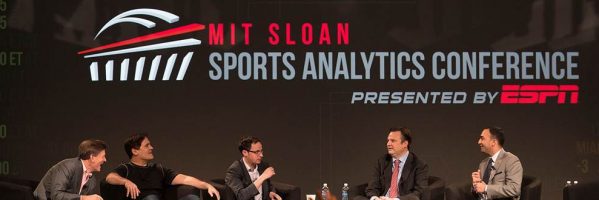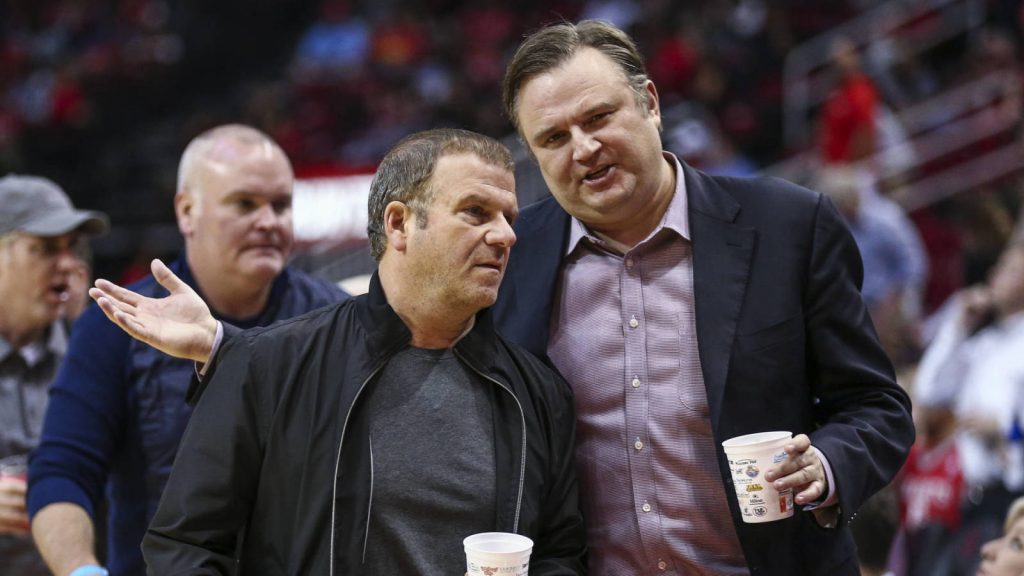The History of the MIT Sloan Sports Analytics Conference

From February 23-24, one of the biggest events in the sports industry and analytics returns for its 12th annual iteration when the MIT Sloan Sports Analytics Conference comes to the Boston Convention and Exhibition Center.
This year, the conference promises to continue to break attendance records, as former President (and everyone’s favorite pickup hoops opponent) Barack Obama is among the scheduled speakers. Joining him will be luminaries of the sports industry such as Maverick Carter and Rob Manfred, and famed egghead and numbers-cruncher Nate Silver will also be along for the ride.
The conference is so large and popular, it is difficult to remember that what Fast Company has ranked as the 3rd Most Innovative Sports Company began as a humble, small-potatoes conference that took place in classrooms on the MIT campus. Let’s look back at the history of the SSAC as its number of attendees grew by more than two thousand percent, and it became a force to be reckoned in an industry given a projected value of $73.5 billion by Forbes.
The MIT Sloan Sports Analytics Conference Early Years
From our January announcement about this year’s event, Matthew Korman writes:
Co-founded by MIT Sloan School of Management MBA graduate Daryl Morey, the current general manager of the Houston Rockets, and Kraft Analytics Group CEO Jessica Gelman in 2006, the annual conference has transformed into one of the most formative sports business events in the world. Since its inception, the event has spawned and popularized numerous movements in the industry, including basketball’s strategic revolution (they call it MoreyBall for a reason).
From its first year in 2007 until 2009, the SSAC took place on MIT’s campus, and while attendance more than doubled during that period, it was still a comparatively low-key affair. Though 2008 brought a keynote speech by Boston Celtics CEO and co-owner Wycliffe Grousbeck, and 2009 saw the beginning of the ‘Featured Panel’ format, the conference was not yet the industry-driving behemoth that it is today.

Houston Rockets owner Tilman Fertitta (left) and general manager Daryl Morey, MIT Sloan grad and co-founder of the MIT Sloan Sports Analytics Conference / Photo via USA Today
Growth Years
In 2010, the SSAC moved to larger digs (at its current home) due to interest and a surplus of programming. The conference’s main attraction was a panel on the limits of statistical analysis moderated by Moneyball author Michael Lewis, as well as the introduction of the research paper track to the conference’s programming. For this aspect, individuals and groups could submit original analysis of statistics-related issues to the organizing committee and vie for a cash prize.
But 2011 was the year that the conference really took aim for the heights of the sports industry: the research paper track was expanded, and a number of soon-to-be immensely popular segments were added to the traditional panel presentation structure. Firstly, Evolution of Sports (EOS) presentations were added, providing a sports industry analog to the ubiquitous TED Talks. In addition, it was the inaugural year for the First Pitch MBA Sports Business Case Competition, in which teams of MBA students from top-ranking programs were presented with a sports business situation and asked to provide a recommendation.
The event continued apace the next year, adding the Trade Show Business Competition, wherein start-ups explain their importance to the sports industry and the most convincing is awarded a cash prize, as well as the Alpha Awards, which recognize those that have altered the field of sports by utilizing analytics to defy conventional wisdom. The next few years of the SSAC saw unprecedented attendance at the conference as it became ever more notorious as a place where the heavy hitters of the sports industry, academia, and statistical analysis come together. The conference has even garnered some nicknames—“The Super Bowl of Analytics” and “Dork-A-Palooza.”
Then And Now
In 2016, conference chair Jessica Gelman noted in her opening remarks that “we had 175 folks at that first conference … this year we have more speakers than we had attendees [at that first conference].” Indeed, the most recent iterations of the SSAC have seen all segments of the conference grow, with an additional broadening of the scope of the conference. For example, in 2017, there were drone races, a live stream that reached an audience of 650,000 people, and a dedicated esports room. 2018 marks the first time that the conference is officially sponsored by ESPN. In final analysis, it seems the only place for the SSAC to go is up.
You can find more details about this year’s event here.
